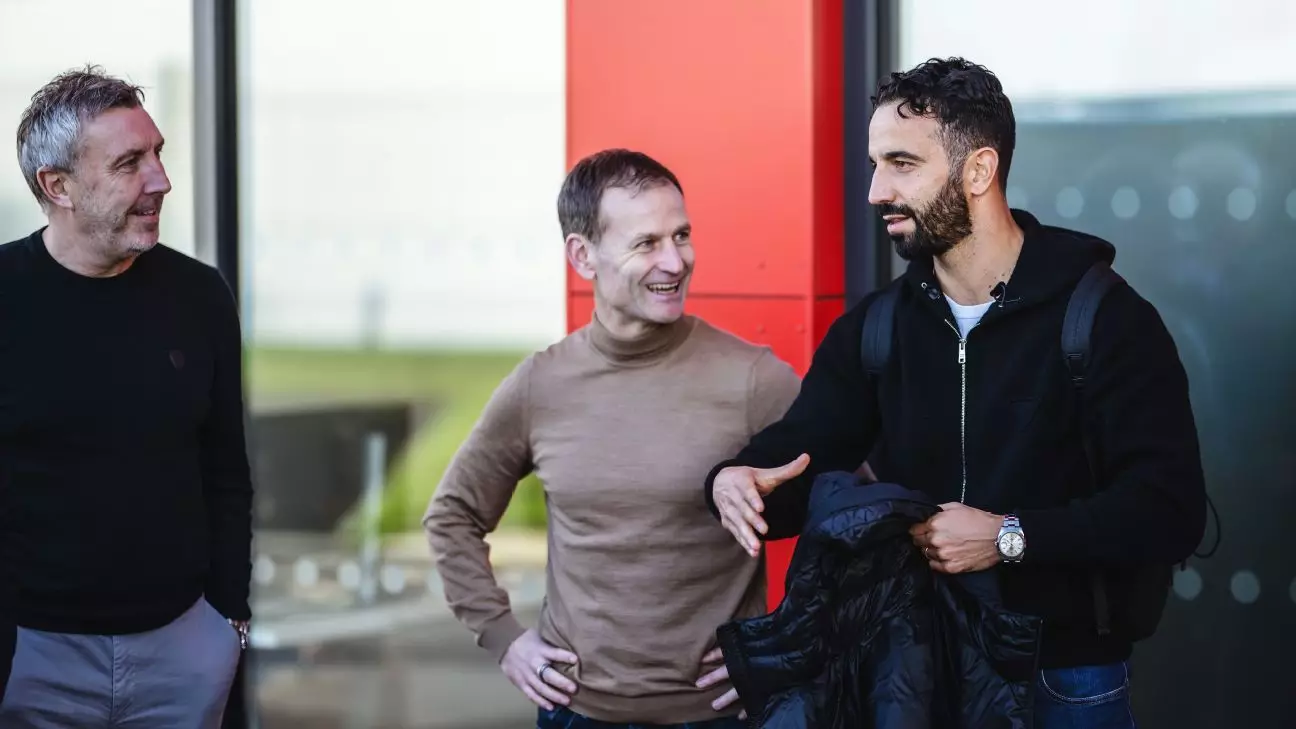Rúben Amorim has stepped into the daunting role of head coach at Manchester United, becoming the sixth permanent manager since the legendary Sir Alex Ferguson retired in 2013. His predecessors—David Moyes, Louis van Gaal, José Mourinho, Ole Gunnar Solskjær, and Erik ten Hag—have faced varying degrees of success, yet none have restored the club to its former glory in either the Premier League or the Champions League. Amorim’s task is particularly formidable; at only 39 years old, he carries both the weight of history and the hopes of fans who yearn for the dominance that once characterized Old Trafford.
While Amorim has garnered a reputation as one of Europe’s most promising young coaches—having led Sporting CP to two league titles—he acknowledges the challenges that lie ahead. He has indicated that immediate success may be elusive but expresses readiness for the fight to revitalize a club with global stature. As he prepares for his debut against Ipswich Town on November 24, it is essential to explore the hurdles awaiting him.
One of the most pressing issues Amorim faces is the tactical transition from the previous formations employed by his predecessors. During his tenure at Sporting, he favored a 3-4-3 formation, a system that brought him notable success. However, United’s current squad is primarily structured for a 4-3-3 approach, necessitating adjustments that may initially impede performance. While the team boasts depth with six senior center-backs, the transition to wing-backs could prove more challenging, prompting potential positional shifts for players like Diogo Dalot and Luke Shaw.
Amorim’s style includes converting inside forwards into hybrid full-backs. This evolution might also apply to promising talents such as Alejandro Garnacho and Amad Diallo, who would need to absorb additional defensive duties. Although adapting to these new roles may enhance their versatility, the question remains whether they can handle the extra responsibilities required in this formation.
His preference for three central defenders impacts the attacking strategy as well. Unlike a traditional 4-3-3 setup, which includes three front-line attackers, Amorim’s configuration would reduce the number of forwards on the field. Bruno Fernandes is likely to secure one of the advanced midfield roles, while the other position may be contested among exciting prospects like Marcus Rashford. However, Rashford’s reported preference for playing on the left and his inconsistency in pressing could pose a risk in a system that demands high work rates from all players.
One area that has plagued Manchester United in recent years is scoring goals. Under Ten Hag, the club recorded a mere 115 goals in the Premier League during his two years at the helm, a stark contrast to Manchester City’s 190 and Newcastle United’s 153 in the same timeframe. Amorim faces immediate scrutiny to revive a faltering attack. Rasmus Højlund and Joshua Zirkzee are the primary options for the central striker role, yet both must raise their scoring output considerably to align with the demands of the club.
Højlund, despite arriving with promise, has so far failed to display the necessary goal-scoring prowess. His current tally of 18 goals in 55 games is underwhelming, especially considering his age. Amorim’s success with Viktor Gyökeres at Sporting highlights his potential to cultivate strikers, but the question remains whether he can replicate that success with Højlund amid the pressure of Premier League expectations.
Currently languishing in 13th place, United’s prospects for the remainder of the season seem modest. However, this creates an opportunity for Amorim to rebuild without the immediate pressure to outpace traditional rivals like Liverpool and Arsenal. Re-establishing a fortress at Old Trafford—in which opponents struggle to secure points—will be a more achievable goal in the near term.
One major challenge will be overcoming the psychological barriers that have developed within the squad over recent seasons. With the club suffering six losses at home during Ten Hag’s last season and additional heavy defeats this campaign, Amorim bears the responsibility of reigniting belief and building a clear playing identity. Fans were often puzzled by Ten Hag’s strategies, as they appeared disjointed at times. A refined, coherent tactical plan from Amorim could foster solidarity and resilience throughout the squad.
As Rúben Amorim prepares to embark on this new chapter with Manchester United, his success will rely heavily on his ability to adapt to the Premier League’s intensity while developing a cohesive gameplay philosophy that resonates with the club’s rich history. Should he manage to navigate these complexities effectively, he may not only restore hope to a beleaguered fanbase but also reignite the passion for a club that has long awaited its return to greatness. The journey is undoubtedly fraught with challenges, but the rewards—both for Amorim and Manchester United—could be transformative.
